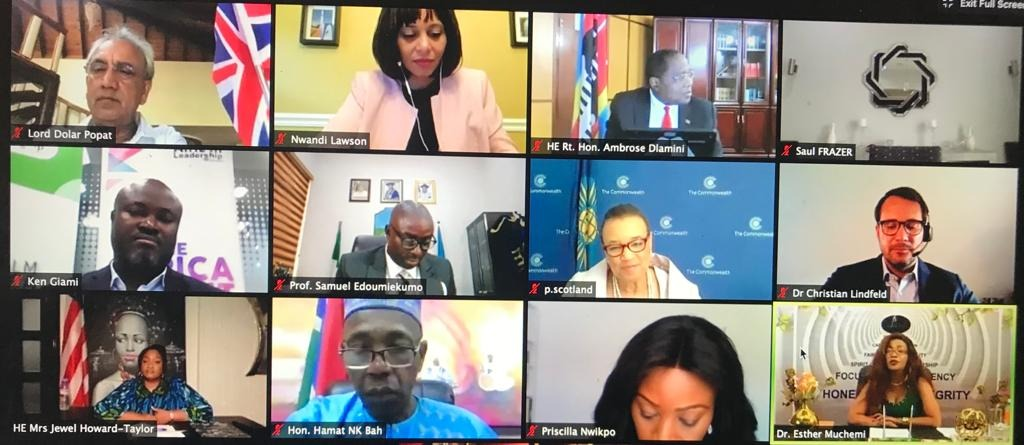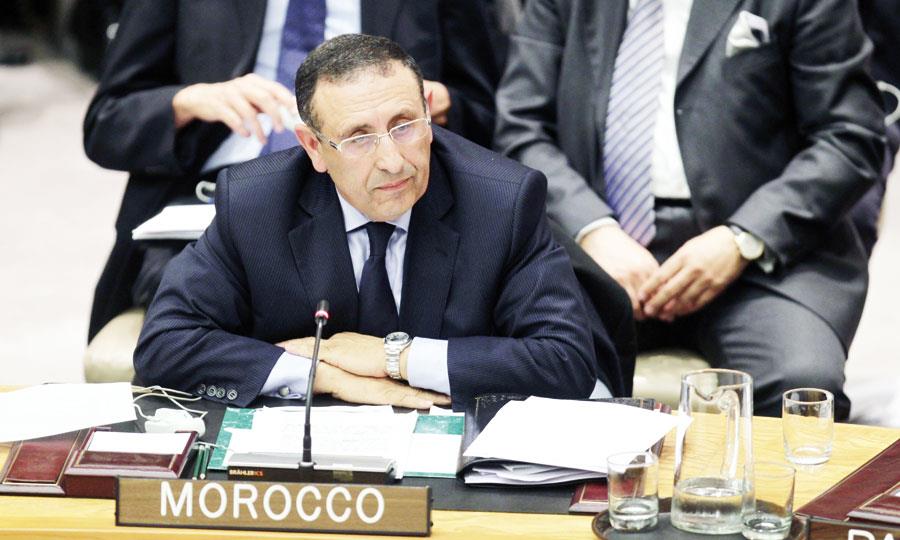By Ehis Ayere
The Africa’s Pulse, World Bank’s twice-yearly economic update for Sub-Saharan Africa, forecast that growth in the region will fall sharply from 2.4% in 2019 to -2.1 to -5.1% in 2020, the first recession in the region over the past 25 years. The region, which has been having the world’s fastest-growing economies since 2000, has been significantly impacted by the ongoing novel coronavirus outbreak. With dire economic consequences for many African countries as measures taken to prevent the spread of infection, such as travel restrictions and closures of markets and schools, have aggravated existing and underlying socio-economic development challenges.
And as with other countries, Eswatini (formerly Swaziland), a landlocked country in Southern Africa, bordering South Africa and Mozambique with a population of 1.2 million, has experienced an upend of its economic activities. With job losses and supply chain disruptions, as the COVID-19 pandemic put a strain on fragile safety nets in the country’s vulnerable communities.
At The Africa Summit 2020, a virtual event, organized by the African Leadership magazine, on Thursday, June 25th 2020, as a response to the debate on resetting Africa’s development priorities, post-COVID-19, the Prime Minister of Eswatini, Rt. Hon. Ambrose Mandvulo Dlamini, delivered a keynote address tagged- “COVID-19: Pathways to Africa’s Economic Recovery and Growth – The Eswatini Approach”, sharing the economic impact of the pandemic in Eswatini and the country’s approach to address same.
Delivering his keynote address, Rt. Hon. Dalmini said ” Eswatini’s pathway to post COVID-19 recovery is focused on boosting the private sector and streamlining the fiscal adjustment plan. Early projections are estimating growth to be around 1.5 percent with the implementation of the plan. In a way, this pandemic provides us with the opportunity to institute reforms in Government with the focus strongly on achieving the milestones articulated in the Sustainable Development Goals (SDGs).”
Eswatini has the highest percentage of people living with HIV in the world. Almost one-third of adults are HIV-positive, according to reports. The country is also severely affected by a tuberculosis epidemic, and around 70 per cent of all TB patients are co-infected with HIV. So the health systems face a critical challenge, responding to COVID-19 in a setting with high rates of HIV. Therefore, the Prime Minister, continuing his speech, said “the pandemic hit us at a time when the King of Eswatini made tremendous strides in the management and control of HIV, Aids, Tuberculosis and Malaria. The country is already on the path to end aids by the year 2022 and to end Malaria. As with the rest of the world, this pandemic has stretched our health system and caused a lot of disruptions to livelihoods, business operations.”
“The parliament declared the pandemic a national emergency in March in order to mobilize resources to effectively implement a response programme. This led to the establishment of the Emergency Cost Team led by the Deputy Prime Minister, consisting of professionals from different sectors of society. We have adjusted our budget for the current year to cater for the response programme. The Government was able to secure US$6million from the World Bank for the health sector to support the national emergency.” The Primed Minister said.
The formulation of strategies to prepare and respond to COVID-19 with an overarching goal of limiting human-to-human transmission of the virus is particularly important for the country with a vulnerable economy and a significant population with underlying medical conditions.
In addition, small and medium-scale enterprises contribute significantly to the Eswatini economy as the sector provides jobs to 92 643 people, which is 43.7% of the 212, 130 employed in Eswatini. Prime Minister Dlamini said that the Government of Eswatini put in place measure to not only assist individuals but small businesses by providing some cushioning interventions. According to him, “Government created a relief fund to cushion the loss of income to labour and unpaid workers in the Kingdom. This fund is put in place by the Government in collaboration with the Employers and Employee Representatives. In addition to the national contingency plan, most workers are on humanitarian health interventions.”
As a response to the country’s macro-economic downturn, especially the upended blossoming tourism industry, with Eswatini named by the Lonely Planet, as one of the top 10 countries to visit in 2020 and Number 1 in Africa, the Prime Minister stated that “government focus is to stimulate the private sector as a driver of economic recovery allowing the sector to take the lead in creating jobs, and stimulating growth as clearly articulated in the country’s strategy roadmap 2018 – 2023.”
He further reassured investors and the global community that “Government is also aware of the need to create macro-economic stability for sound management and credibility of government institutions. We are currently working multilateral development Banks, such as the World Bank, African Development Bank, as well as the IMF to ensure stability and sustainability of the economic renewal process post- COVID-19. Early projections are estimated growth to be around 1.5% with the implementation of the plan.”
The Africa Summit, which had always held in London, United Kingdom took place virtually, this year, as a response to the debate on resetting Africa’s development priorities, post-COVID-19 and to celebrate outstanding organizations and individuals who are leading the recovering process. The 2020 Africa Summit, tagged- COVID-19: Pathways to Africa’s Economic Recovery and Growth, witnessed over 300 registered active participants from the business, political and diplomatic spectrums, and a social media live-streaming to a larger audience, across Africa, United Kingdom and the United States.
Commonwealth Secretary-General Patricia Scotland QC, Liberian Vice President Jewel Howard-Taylor, and Lord Dollar Popat, UK Prime Minister’s Trade Envoy to Uganda and Rwanda and member House of Lords also addressed the summit. Other speakers at the summit included Senator Manqoba Khumalo, Minister of Commerce, Industry & Trade, Eswatini; Hon. Hamat NK Bah, Minister of Culture & Tourism, The Gambia; Senyo Hosi, CEO, Ghana Chamber of Bulk Oil Distributors & Managing Partner Ghana Private Sector Trust Fund; Dr. Christian Lindfield, Managing Partner, Africa Advisors, Germany; Dr. Victor Oladokun, Former Director of Communications, African Development Bank; Saul Frazer, CEO & Founder, Global Properties, The Gambia; Dr. Esther Muchemi, CEO, Samchi Group, Kenya; and Prof. S.G. Edoumiekumo, Vice-Chancellor, Niger Delta University Nigeria.
Full text of Prime Minister Dlamini’s speech can be found below:
Dr Giami our host
Heads of State and Government,
The Secretary-General of the Commonwealth,
Hon. Ministers and distinguished guests
I bring with me warm and fraternal greetings from His Majesty King Mswati III, King and Ingwenyama of the Kingdom of Eswatini, the Queen Mother and the entire nation.
I am honoured to have this opportunity to address the Africa Summit 2020 as organized by the African Leadership Magazine at a time when the world is faced with an invincible enemy showing unpredictable tendencies.
Evidently, the COVID-19 pandemic has forced global economies to endure substantial GDP loses, increased unemployment and put pressure in the efficiency of health care systems. Most critically, the pandemic has enabled governments, businesses and individuals to assess the impact of their development policies, programmes, projects, expenditure, and further evaluate the effects of globalization. This evaluation has given insight to areas of glaring inequalities in the global economic sphere.
The impact of COVID 19 in Africa is well documented, with the International Monetary Fund projecting a loss of about $200 billion in income and a contraction of the African economy by 1.5%. Few, if any, industries have not felt the brunt of the pandemic – causing loss of jobs and livelihoods and increased levels of poverty.
For Eswatini, the pandemic hit us at a time when the Kingdom had made significant strides in the management and control of HIV and AIDS, TB and malaria. The country is currently on the path to ending AIDS by 2022 and to eliminate malaria.
As with the rest of the World, this pandemic has stretched our health system and caused major disruptions to livelihoods and business operations, leading to a strained economy. The government declared the pandemic a National Emergency in March in order to mobilize resources to effectively implement response programmes. This led to the establishment of Emergency Task Teams led by the Deputy Prime Minister, consisting of professionals from the different sectors of our society. A partial lockdown was introduced to allow our health system to delay the number of infections and adequately prepare for an upsurge of cases.
We have had to adjust our national budget for the current year to cater for the COVID 19 response programmes. We are grateful for the support we have received from our international partners and friends, the private sector and individuals. The government also secured a loan of US$6 million from the World Bank specifically for the health sector to support the National Contingency Plan for the novel coronavirus.
This plan is coordinated and managed by the National Disaster Management Agency on behalf of all government ministries and agencies. Coordination interventions include surveillance, rapid response teams, case investigation and management, laboratory support, infection prevention and control, risk communication and community engagement, as well as operational support and logistics.
It goes without saying that the virus has had a serious impact on our economy and social lives. The lockdowns announced globally in March and specifically in South Africa, which is our big trading partner and neighbour, resulted in the closure of borders critical for travel and trade.
Numerous companies, SMEs and the businesses in the informal sector had to close. Some businesses laid-off workers and others paid only a proportion of salaries.
To dampen the negative effects of this development on the domestic economy, the Government has put in place measures to assist individuals and businesses by providing some cushioning interventions.
The government created a Relief Fund worth around $1.7 million to cushion the loss of income for laid off and unpaid workers in the Kingdom. This Fund is managed by Government in collaboration with employer and employee representatives.
The loss of jobs has already meant many citizens are now food insecure and need assistance. Government has adopted a two-pronged approach to address this – that of proving cash transfer and food parcels to the most needy of our populace. This cash and food assistance has already been extended to over 300 000 citizens across the country.
In addition to the National Contingency Plan whose focus is on humanitarian and health interventions, Government considered assistance for tax compliant small businesses using tax concessions. They will receive cash through tax refunds from the Eswatini Revenue Authority in monthly installments of 25% of the actual income tax paid.
However, the Government had to consider that many other SMEs might not meet the criteria of being tax compliant yet their survival is crucial for the livelihood of many citizens. It is for that reason that Government has set aside another Fund, hosted by the Ministry of Commerce, Industry and Trade, to finance some SMEs according to certain criteria. This is done because:
- i) There are a number of SMEs and SMMEs who make just enough to survive and not enough profits to pay tax consistently.
- ii) Eswatini’s economy, like the rest of the continent, has a number of informal traders who are in business just for survival. Examples are spaza shops, hawkers, street vendors, among others, who have also been negatively impacted by the partial lockdown.
Furthermore, Government reduced fuel prices, reduced the discount rate with 100 basis points in order to reduce the cost of debt with 1%, reduced the liquidity requirement for banks from 25% to 20% – giving the banks more liquidity – and waived penalties for late tax payments and made arrangements for delayed tax payments.
Banks have assured business entities and companies that need short term financial support or relief that each application will be assessed on a risk-based approach.
As alluded earlier, the COVID-19 pandemic has caused short to long term effects on the economy and livelihoods, worsening an already fragile macro-economic environment, with growth levels averaging around 2 percent over the past three years. This has heavily compromised the capacity to deliver services and inject more stimulus for growth.

Prior to the COVID-19 outbreak, GDP growth for the Eswatini economy was projected to increase from 1.4 percent in 2019 to 2.8 percent in 2020. This was anticipated to improve Government’s spending thus spurring growth in the tertiary sector. Improved weather conditions were expected to support agricultural activity, while an anticipated improvement in external demand would have boosted performance in the manufacturing sub-sector.
The COVID 19 outbreak has largely impacted the demand side of the economy, an aspect applicable to most countries globally and not unique to Eswatini. The lower demand for products and services will, in turn, have a negative effect on employment opportunities and business investment for most countries.
Less demand for Eswatini’s products in the international markets will affect the country’s growth prospects. A slump in commodity prices will adversely affect Eswatini’s export revenues and consequently economic activity in export dominated sub-sectors such as agriculture – in our case mainly sugar and beef – and manufacturing.
Indeed, heightened uncertainty translates into individuals consuming fewer products and services and firms spending and investing less due to revenue loss. The imposition of a ban on travel also affects economic activity, particularly in the tourism and transportation sub-sectors. This came at a time when Tourism was flourishing as Eswatini was named among the World’s best 10 countries to visit in 2020 by Lonely Planet and number one in Africa.
Government has already initiated a dialogue to receive financial support from multilateral institutions and different processes are being undertaken in the progression towards accessing external funding. The Kingdom of Eswatini is also working closely with such partners as the UN, EU, SADC, AU, Commonwealth, Development Partners and other countries in the fight against this pandemic.
Currently, the Government is working on an Economic Response Plan post-COVID-19. A Cabinet sub-committee has been formed to focus on the economic recovery plan. It is informed by workstreams which are segmented into infrastructure, energy and water, agriculture, macroeconomic and financing analysis, among others.
The main focus of the subcommittee is to stimulate the private sector as a driver of economic recovery and growth. Allowing the private sector to take the lead in creating jobs and stimulating economic growth is clearly articulated in our Strategic Roadmap 2018 – 2023. The private sector has prepared a pipeline of capital investment projects spanning from the food to garments industries.
Government is committed to providing a conducive environment and necessary support in terms of enabling legislation, tax, road infrastructure, utilities, IT services, factory accommodation and related infrastructure.
Government is also cognizant of the need to achieve macro-economic stability for sound management and credibility of governing institutions. We are currently working with multilateral development banks such as the World Bank, African Development Bank as well as the IMF to ensure stability and sustainability of the economic renewal processes post COVID-19.
In a nutshell, Eswatini’s pathway to post COVID-19 recovery is focused on boosting the private sector and streamlining the fiscal adjustment plan. Early projections are estimating growth to be around 1.5 percent with the implementation of the plan. In a way, this pandemic provides us with the opportunity to institute reforms in Government with the focus strongly on achieving the milestones articulated in the Sustainable Development Goals (SDGs).
Under the astute leadership of His Majesty King Mswati III, the Kingdom of Eswatini is determined to realize the goals of our Vision 2022, that of attaining first world status. We are grateful for the counsel of Their Majesties who are leading from the front in helping the country overcome this pandemic and set us back on the path of economic recovery to improve the lives of all Emaswati.
In conclusion, may I once again appreciate the opportunity afforded to us to address this gathering about our situation and plans for combating the ills of COVID 19. Sharing ideas and experiences with each other will help resuscitate the African economy which is under immense pressure from the effects of this pandemic.
I thank you.


